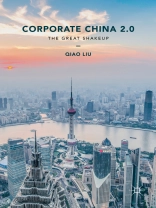This book argues that that the rise of great firms – those with sustainable high return on invested capital (ROIC) – will lay the foundation for China’s successful economic transformation. Drawn from the author’s research on corporate finance and the Chinese economy, the author maintains that being big could be easy but means little for corporate China, especially in the context of China’s transition from an investment-led economy to an efficiency-driven one. The work discusses both internal and external impediments that lead to lack of great companies in China and suggests institutional conditions which foster the rise of great companies in China, including, reversing the government’s obsession with GDP, reforming the financial system, and promoting entrepreneurship. Policy makers, investors, corporate executives, and MBA students and scholars will appreciate case studies of Huawei, Alibaba, Xiaomi, and Lenovo, among others, that illustrate the endeavors made by Chinese entrepreneurs at the grassroots level and highlight what makes successful companies in China.
Table of Content
1. The Improbably Surge of Corporate China.- 2. What Is in a Great Company?.- 3. Does ROIC Apply to Corporate China?.- 4. The “Great” Hope Struggles.- 5. It Is Also About Corporate Governance.- 6. The Perils of Diversification.- 7. Shake up the Foundations.- 8. The Beginning of A Breakthrough.- 9.Conclusion – How Can Chinese Companies Be Truly Great?.
About the author
Qiao Liu is Professor of Finance and Associate Dean for the EMBA program in the Guanghua School of Management, Peking University, China. Formerly, he was a corporate finance expert at Mc Kinsey. He has published numerous articles at leading academic journals including
Journal of Financial Economics,
Journal of Financial and Quantitative Analysis,
Management Science,
Journal of Accounting Research, and
Economic Journal. He is co-author of the book
Finance in Asia: Institutions, Regulation and Policy.












